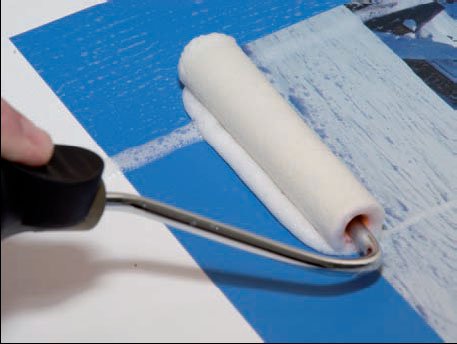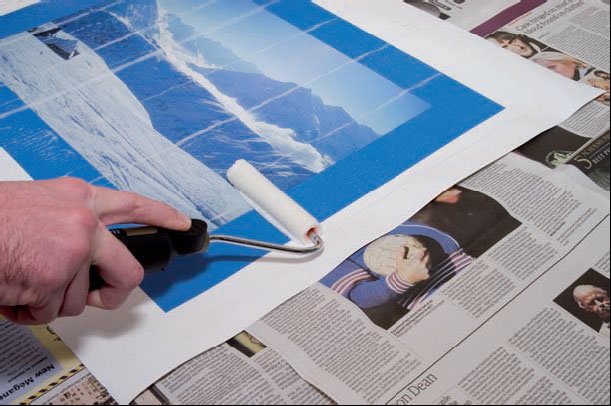articles/Postproduction/dcp-page1
DCP Non-Foam Giclee Varnish - part 1 of 1
by Mike McNamee Published

Varnishing anything has always been an acquired skill and applying it to a canvas print requires a little bit of practice. One residual issue has always been foaming of the varnish especially when high-density sponge rollers are employed (don't even think about cheap, low density ones!). Rollers are still preferred for the first coat of varnish because brushing can easily leave a chequer-board of bare white patches on the "summits" of the canvas weave, where ink is rubbed away by too vigorous brushing or "revisiting" a partially coated area. DCP has now added an anti-foaming agent to its Giclee Varnish and we tried it out on a number of projects. The best roller for the job we have currently found is the Harris, short nap velour provided, as part of the Finesse Woodcare range, available through most quality hardware chains and stores. For second coats and (with great care) brushed first coats, we now like either the Purdy (available from DCP) or the Harris Easy Clean synthetic (which has replaced the White Diamond).

Of particular importance is cleaning the brush after use, you really need to use a lot of soap and water, assisted preferably by a nail-brush. Harris sells a Definition Brush Comb for brush maintenance, which we found useful on a poorly cleaned Purdy to bring it back up to scratch. The varnish behaved in a similar manner to when previously tested. It added about 5% more density to the print, deepening the Dmax quite a bit and shifting the highlights a couple of points more yellow.
Top Tips 1. Coat a canvas with one roller-applied coat before stretching then a second coat with a brush after stretching. A third coat might also be needed depending on the absorbency of the media. 2. On the first coat do not revisit uncoated areas or if you must be very gentle. 3. We found that bringing the roller slowly towards you created less foaming. 4. Leave two hours between coats and keep the job in dustfree conditions. 5. Stir, not shake, the tin before use 6. Pouring a quantity of varnish into a jar and gently warming the jar with warm water will make a first coat flow more evenly. A warm room is also better than a cold, damp one.
You are currently on page 1 Contact Mike McNamee
1st Published
last update 09/12/2022 14:53:08
More Postproduction Articles
There are 0 days to get ready for The Society of Photographers Convention and Trade Show at The Novotel London West, Hammersmith ...
which starts on Wednesday 15th January 2025




